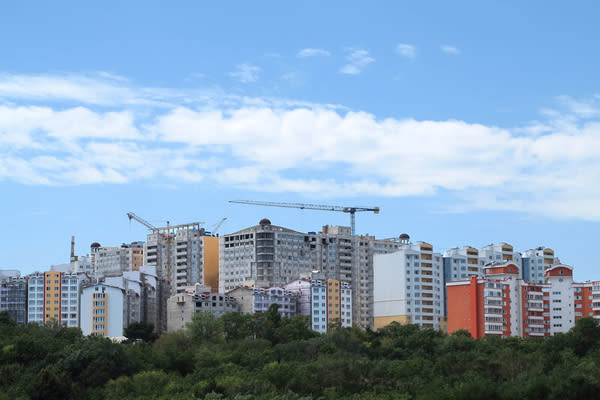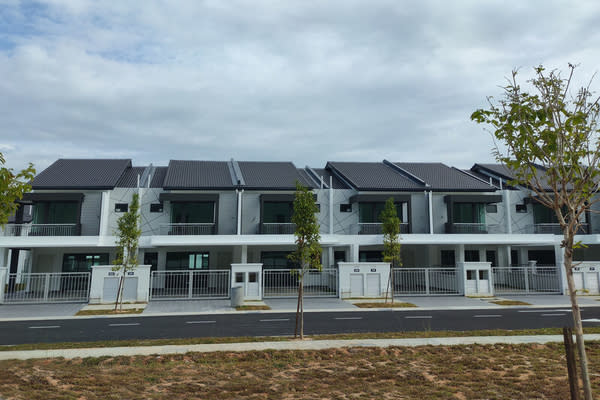Government Urged To Extend 75% Stamp Duty Exemption To All Buyers, 7,615 Development Projects To Be Implemented Next Year And, More

4th October – 11th October
While property developers welcome the increased stamp duty exemption of 75%for first-time buyers of homes priced above RM500,000 to RM1 million, they urge the government to extend such exemption to all buyers.
Meanwhile, Datuk Seri Mustapa Mohamed, Minister in the Prime Minister’s Department (Economy), said a total of 7,615 development projects are set to be implemented across the country next year.
1) Government urged to extend 75% stamp duty exemption to all buyers
While property developers welcomed the increased stamp duty exemption of 75%, from 50% previously, for first-time buyers of homes priced above RM500,000 to RM1 million, they called on the government to extend such exemption to all buyers.
Real Estate and Housing Developers’ Association (REHDA) Malaysia president Datuk NK Tong believe that doing so would benefit a wider pool of buyers, particularly the upgraders, reported The Star.
He noted that the 75% stamp duty exemption – which will run until 31 December 2023 –would complement the previous stamp duty exemption on the memorandum of transfer of residential properties priced at RM500,000 and below until end-2025.
Tan Sri Leong Hoy Kum, Founder and Group Managing Director of Mah Sing Group Bhd, pointed that a buyer of a property priced at RM750,000, for instance, would save up to RM15,000 with the 75% exemption.
“This will pique the interest of middle-to-upper income first-time home buyers,” he said.
2) 7,615 development projects to be implemented next year
Datuk Seri Mustapa Mohamed, Minister in the Prime Minister’s Department (Economy), said a total of 7,615 development projects are set to be implemented across the country next year.
Of these, 1,724 are new projects, while the other 5,891 are extension projects, reported Bernama.
Among the new projects that have been approved under Budget 2023 are the improvement of infrastructure facilities within rural areas, upgrading the North-South Expressway to six lanes, Pan Borneo Sabah Highway’s Phase 1B and flood mitigation plans across Malaysia.
He revealed that the development allocation for 2023’s budget is the highest in history at RM95 billion, up 25.7% from 2022’s RM75.6 billion.
“To bridge the regional development gap, the government has also allocated 50.3% of the basic development expenditure to six underdeveloped states to implement projects, including water infrastructure, electricity, roads, health and education facilities,” he said.
“A total of RM6.3 billion is allocated to Sabah and RM5.4 billion to Sarawak, which is higher than the allocation announced in 2022,” added Mustapa.
3) Reforms in housing policy could break poverty cycle
Two economists believe that a reform in the Government’s housing policy could help support efforts to address urban poverty.
Carmelo Ferlito, Chief Executive Officer of Center for Market Education, said there is too much focus on home ownership nowadays. However, the homes provided by Putrajaya are situated in locations which did not allow for social mobility or “the ability to escape poverty”, reported Free Malaysia Today.
With this, he suggested relocating poorer folks to environments and conditions where they will have better access to gaining the resources they require.
“Rather than providing homes to the poor, the government should focus on rent support schemes that will move the poor away from ‘ghetto’ areas to where better job opportunities are available,” said Ferlito at the launch of the book he co-authored with Bait Al-Amanah Research Director Benedict Weerasena.
The book was titled “Assessing and Addressing Urban Poverty in Malaysia – Social Mobility Through Entrepreneurship”.
Weerasena noted that there is a lot of room for improvement with regards to social mobility in Malaysia. He pointed that the lack of social protection schemes may trap more households in poverty in case of an economic shock.
4) Selangor residents urge state to resolve long-standing land issues
A coalition of Selangor residents has submitted a memorandum in which is ask the state government to intervene and resolve several long-standing land issues.
Among the concerns of the Housing and Urban Settler Coalition are land promised to estate workers within Dengkil as well as the eviction dozens of families in Batu Caves faces to make way for a development project, reported The Star.
“Some of these issues have been highlighted to the state authorities before but have yet to be resolved,” said coalition representative Parameiswary Elumalai, who also serves as Parti Sosialis Malaysia member.
Vasantha Dewi, 47, noted that some 70 former estate workers within Kampung Seri Tanjung in Dengkil are still waiting for the land promised to them since the late 1980s.
Meanwhile, the 52 families living in Kampung Sri Makmur, Batu Caves hope the state can compel the developer to “sponsor” their moving and rental costs.
“We heard that the land belongs to the state government but we are unsure what type of project is being planned here,” said Awang Jusoh, 64.
5) Government urged to prioritise high interest rates, unsold home issues
Dr Ahmad Hariza Hashim, Universiti Putra Malaysia’s Lecturer at the Faculty of Human Ecology, has urged the government to prioritise the issue of high interest rates and the problem on unsold houses in the 2023 Budget.
He noted that the interest rate charged to home buyers, especially those in the B40 group, is so high such that even a housing unit offered under the People’s Housing Programme (PPR) is expensive and beyond the reach of such group of buyers.
“Therefore, it is necessary for financial assistance or a reduction in loan interest rates if not free, to be introduced for this group so that it will be easier for them to own a house,” he told Bernama.
Citing the 35,592 unsold housing units, including 10,000 PR1MA units, the housing lecturer also suggested expanding the rent-to-own (RTO) financing scheme for unsold homes in next year’s budget via financial assistance or loans, which would come with lower interest rates.
“The RTO concept should be expanded for unsold houses because they are already in the market and it can help reduce the financial burden on developers,” he said.
6) Residents slam MPAJ over infrastructure projects
Ampang Jaya stakeholders questioned the inclusion of the two major transportation projects in the Ampang Jaya Municipal Council Draft Local Plan 2035 (RT MPAJ) even as the alignment for the two projects are yet to be finalised.
They pointed that the lack of details regarding the proposed alignments for the Kuala Lumpur Northern Dispersal Expressway (KL Node) and Mass Rapid Transit (MRT) 3 Circle Line meant residents would not be able to give accurate feedback on the projects, reported The Star.
“If we do not have the necessary details such as where the exact locations of the MRT stations will be, how can we be expected to give any objections or suggestions?” asked a Taman Bakti resident who wanted to be identified only as Sathesh.
“What little information provided is insufficient and should not have been included in this draft plan,” he said.
Meanwhile, a large group of residents at Taman Kencana objected against the MRT3 alignment as it could affect their area.
Taman Kencana MRT3 action committee chairman Mohd Najib Mat Nor shared that residents learned that the project would run through their neighbourhood only after receiving the notice from the land office regarding the possible acquisition of their homes.
7) Promote homeownership through higher household income
Instead of asking for more incentives to promote home ownership, efforts should be channelled to increasing manufacturing output and export earnings to “put more money into the hands of households to purchase properties”.
This comes as the extra incentives would have limited impact if the buyers do not have adequate income to make the acquisition, said CBRE|WTW Group Managing Director Tan Ka Leong as reported by the New Straits Times.
To help the M40 and B40 groups, the government should persuade the employers – from the manufacturing to government-linked firms – to offer housing to their employees, just like the government housing for civil servants.
“They can do this by offering tax deductions for interest expenses of company loans for staff housing, property management expenses for apartment complexes, and possibly annual capital allowances of 5 to 10% of the cost of the housing properties,” he said.
“The employers are also allowed to acquire low/affordable cost overhang properties as their assets to use as their workers’ residential schemes or can rent such housing units for this purpose,” added Tan.




